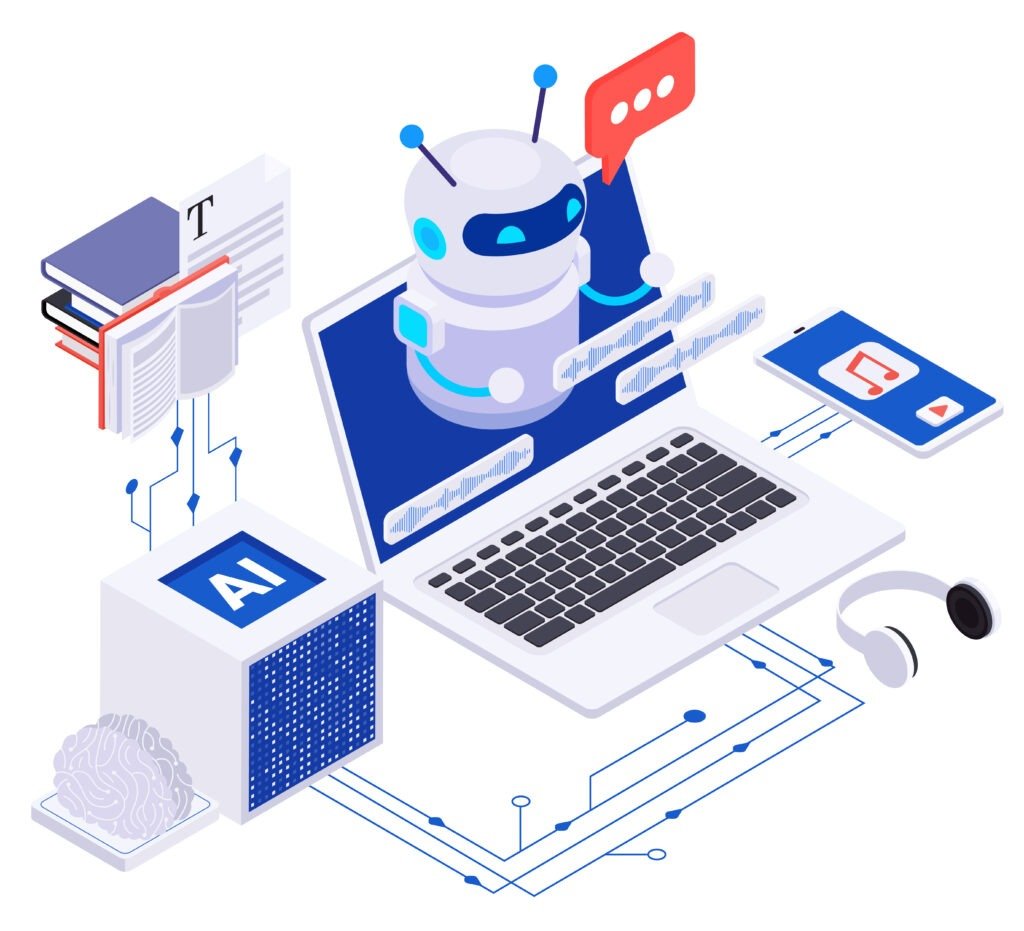
Importance of Tech Trends in Small Businesses
The business landscape is changing rapidly thanks to advances in technology. For small businesses to remain competitive and future-proof their operations, it’s crucial to stay on top of the latest tech trends. While implementing new technology systems does require some investment up front, the long-term benefits outweigh the costs. The right technology can streamline workflows, reduce overhead, and enable small businesses to scale more efficiently. Adopting innovation also allows small businesses to keep pace with competitors and differentiate themselves.
5 Tech Trends Small Businesses Can’t Ignore
This article will explore five key technology trends that small businesses need to pay attention to now in order to future-proof their operations and remain competitive in the years ahead. These include cloud computing, artificial intelligence, the Internet of Things, cybersecurity, and 5G. By proactively evaluating and integrating these emerging technologies, small businesses can drive growth and success over the long-term.
1. Cloud Computing

Cloud computing involves storing data and accessing software applications over the internet, rather than on local servers or personal devices. For small businesses, adopting cloud services provides many advantages:
Scalability
Cloud-based services can easily scale up or down based on your business needs. You only pay for the storage, bandwidth and computing power you actually use. This is more flexible and cost-effective than maintaining your own servers.
Cost Savings
No need to invest in expensive on-site hardware and IT staff. The cloud provider manages maintenance and upgrades. You avoid capital expenditures by paying a monthly fee based on usage.
Accessibility
Employees can access documents and applications remotely via any internet-connected device. This enables flexibility in working locations and mobility.
Collaboration
Cloud-based tools allow real-time collaboration across teams and locations. Documents can be accessed and edited by multiple people simultaneously.
Disaster Recovery
Data is stored offsite in the cloud rather than on-premises servers. This provides protection in case of events like fires or floods. Systems can be easily restored from the cloud.
Automatic Software Updates
The service provider manages updates and patches for applications, reducing the burden on internal IT staff.
Flexibility
Resources can be allocated where and when they are needed. Services and capacity can be adjusted to meet changing business demands.
For small businesses, moving operations to the cloud provides cost efficiency, flexibility, mobility, and scalability. Cloud computing is a crucial technology trend that enables small businesses to compete and grow.
2. Artificial Intelligence

Artificial intelligence (AI) refers to computer systems that can perform tasks normally requiring human intelligence, such as visual perception, speech recognition, and decision-making. AI has become indispensable for small businesses looking to streamline operations, gain insights from data, and improve customer engagement.
Some examples of AI that small businesses can leverage include:
Chatbots
Chatbots powered by AI can answer customer questions, take orders, schedule appointments, and more. They enable 24/7 customer service without having to hire more staff.
Predictive analytics
By analyzing data from CRM systems, web traffic, sales funnels, and more, AI can identify patterns and make data-driven predictions to guide decision making. This helps with forecasting, resource allocation, and identifying growth opportunities.
Computer vision
AI can automate tasks like processing documents, monitoring inventory levels, or inspecting products for defects. This improves efficiency and frees up employees for higher-value work.
Recommendation engines
AI algorithms analyze customer data and behavior to provide personalized recommendations. This helps drive repeat business and increase average order value.
Fraud detection
AI can identify patterns and anomalies to detect fraudulent transactions, minimizing losses. This provides protection especially important for e-commerce businesses.
By integrating AI into their operations and customer experience, small businesses can work smarter, save time and money, and better compete with larger competitors. The right AI solutions scaled to a small business’s needs can yield enormous benefits now and into the future.
3. Internet of Things

The Internet of Things (IoT) refers to the network of physical objects that are embedded with sensors, software, and other technologies to connect and exchange data over the internet. IoT enables devices to be controlled remotely and provides businesses with more data about their operations.
IoT is transforming small businesses by providing more efficient operations, better customer service, and data to drive informed decisions. Here are some of the key ways IoT is benefiting small businesses:
Inventory Management
IoT sensors can track inventory levels, location, and condition in real-time. This allows businesses to optimize stock levels, prevent shortages or waste, and streamline logistics.
Equipment Monitoring
Sensors can monitor production equipment to detect issues before breakdowns occur. Preventive maintenance improves uptime.
Automation
IoT devices can automate tasks like restocking shelves when inventory is low, adjusting lighting and HVAC based on real-time occupancy, etc. This saves labor costs.
Customer Service
Wearables allow retail and restaurant staff to rapidly locate items for customers. Customers can use apps to check stock levels or order ahead.
Data Analytics
All the data from IoT devices provides valuable insights. Retailers can analyze customer behavior. Manufacturers can optimize production. This data drives efficiency.
The falling costs of sensors and rise of IoT platforms like Azure or AWS means small businesses can now leverage IoT. With the right strategy, IoT can provide small businesses with an edge over the competition.
4. Cybersecurity

Cybersecurity is becoming increasingly crucial for small businesses as the threat landscape grows more sophisticated. Small businesses are enticing targets for cybercriminals because they often have weaker defenses than large enterprises. However, a successful cyberattack can be devastating for a small business, potentially leading to significant financial losses, legal liabilities, and reputational damage.
Some best practices small businesses should implement:
Use strong passwords and enable multi-factor authentication wherever possible. Require employees to use password managers and have strict password policies.
Keep all software updated and patched. Outdated systems are vulnerable to exploits. Automate updates whenever possible.
Use a business-grade firewall and antivirus software. Don’t rely solely on basic consumer-grade security tools.
Back up data regularly and keep at least one recent backup offline and disconnected. This protects against ransomware.
Establish security policies for employees. Educate them on cyber risks and have rules like prohibiting clicking links in suspicious emails.
Control access to sensitive data and limit privileges for each user. Don’t let all employees access everything.
Consider cyber insurance to help cover costs in the event of an attack.
With cyberattacks on the rise, small businesses can’t neglect cybersecurity. Taking proactive steps to implement strong defenses will pay dividends in the long run.
5. 5G is the Next Frontier for Connectivity

The rollout of 5G networks represents a significant leap forward in wireless technology and connectivity speeds. For small businesses, the implications of 5G are huge. With 5G, businesses can expect broadband-like speeds delivered wirelessly across devices. We’re talking about multi-gigabit per second speeds – up to 10 to 100 times faster than 4G LTE networks.
What does this mean for small businesses? Faster connectivity paves the way for major technology advancements. With 5G, bandwidth-intensive applications like augmented reality and virtual reality become more accessible. Autonomous vehicles and smart cities also rely on the high speeds, broad coverage, and low latency of 5G networks. Video conferencing, cloud computing, IoT devices, and other bandwidth-heavy operations will see major performance gains with 5G connectivity.
The near real-time responsiveness of 5G allows for innovations like smart manufacturing, where systems can adapt and optimize production lines rapidly. This level of speed and connectivity also enables advanced capabilities in telemedicine and remote healthcare. Small businesses in various sectors stand to benefit from the new capabilities unlocked by 5G wireless technology.
In short, cloud computing enables cost savings, efficiency, and flexibility by storing data and apps remotely. AI and machine learning provide automation and insights to improve workflows. The Internet of Things connects devices for tracking and data collection. Robust cybersecurity protects sensitive business and customer data. 5G delivers ultrafast speeds to support tech advances. Big data analytics uncovers patterns to inform business decisions.
The bottom line is that technology is empowering small businesses to work smarter, faster, and better. To thrive into the future, it’s vital to invest in and integrate these emerging tech trends. The initial costs pay off exponentially in the long run with increased capabilities, productivity, and resilience. Don’t get left behind – take steps now to implement innovative tech solutions appropriate for your business goals and growth. The future starts today!
Bio
WebHub is your one-stop partner for digital success. Our team of experts in web design, development, marketing, and creative fields works together to craft custom solutions that propel your business forward. We believe in building trust and exceeding expectations through exceptional service, quality, and transparency.




